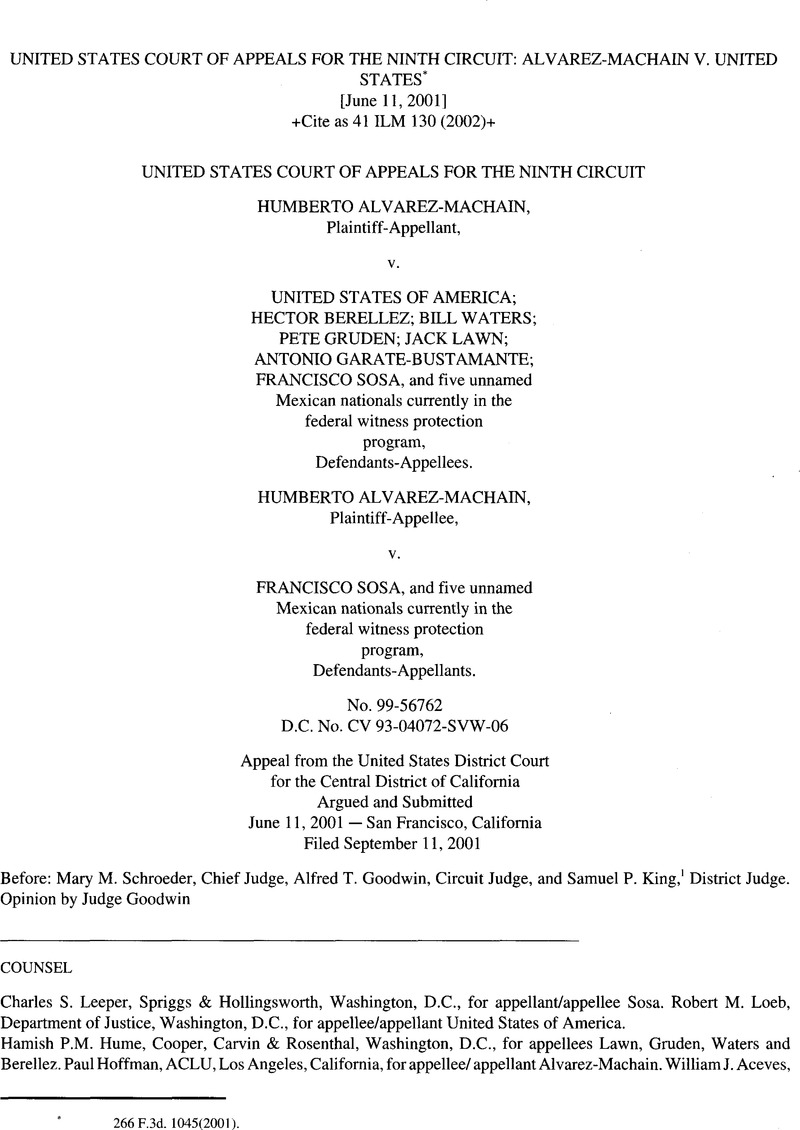Published online by Cambridge University Press: 18 May 2017

266F.3d. 1045(2001).
1 Honorable Samuel P. King, Senior United States District Judge, for the District of Hawaii, sitting by designation.
2 The relevant provision of the Gonzalez Act provides: The remedy against the United States provided by [the FTCA] for damages for personal injury, including death, caused by the negligent or wrongful act or omission of any physician … of the armed forces … while acting within the scope of his duties or employment … shall hereafter be exclusive of any other civil action or proceeding by reason of the same subject matter against such physician … whose act or omission gave rise to such action or proceeding.” 10 U.S.C. § 1089(a)(1998).
3 It appears that the district court did not hold that the DEA officers were immune. It noted that the parties were confusing matters by discussing immunity, because the defendants were not arguing that they were immune under state law, but rather that the arrest was not unlawful under state law. Despite arguing that immunity was not at issue, the district court suggested that it believed the officers could be immune from FTCA liability under state law. The court describedTing v.United States, 927 F.2d 1504,1514 (9th Cir. 1991) andArnsberg v. United States, 757 F.2d 971 (9th Cir. 1985) as cases in which the Ninth Circuit had applied state immunity principles to a claim of false arrest under the FTCA. The district court also declared thatTing “directly governfed]” Alvarez's case. As Alvarez notes, theTing court did not decide whether state immunities under Cal. Civ. Cod § 43.55 could bar FTCA claims. Instead, it based its holding on the absence of malice, a requirement for the claim of false arrest.See Ting 927 F.2d at 1514. Nor doesArnsberg stand for the proposition that state immunities could bar an FTCA claim. InArnsberg, the Court held that IRS agents who consulted with an assistant United States Attorney before they sought the warrant and could reasonably rely on the attorney's belief that the arrest was legal were insulated by qualified immunity under federal law in a Bivens action for executing invalid material witness arrest warrant, but that state citizen's arrest law did not apply.Arnsberg, 757 F.2d at 979, 81.
4 TheAsgari court also relied on Cal. Gov. Code § 820.4, which immunizes “public employees” from actions based on false arrest.